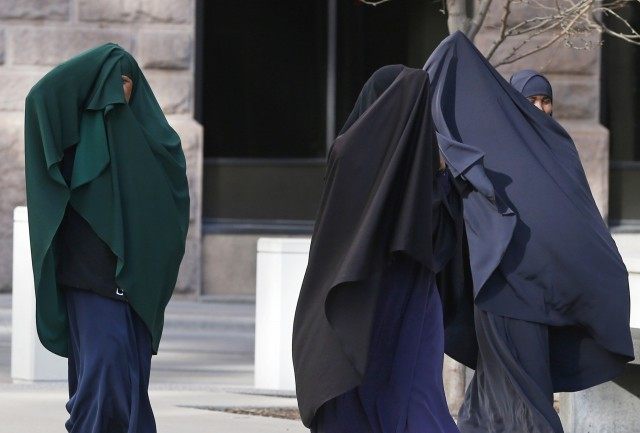ST. PAUL, Minn. (AP) — Attorneys for four Minnesota men accused of trying to travel to Syria to join the Islamic State group questioned the government’s use of a paid informant, and argued Thursday that the case against their clients is slim.
But U.S. Magistrate Judge Becky Thorson found there was probable cause to believe a crime was committed, and she ordered the four men to remain in custody while the case proceeds.
The men are among six who were charged over the weekend with conspiracy to support a foreign terrorist organization and with attempting to support a foreign terrorist organization. Authorities allege some of the men made repeated attempts to get to Syria, and had developed a plot to get fake passports and travel overseas through Mexico.
According to an FBI affidavit, the government’s months-long investigation was aided by recordings made by a man who once planned to travel to Syria himself, but then decided to cooperate.
Thursday’s hearing was for Guled Omar, 20; Adnan Abdihamid Farah, 19; Zacharia Yusuf Abdurahman, 19; and Hanad Mustafe Musse, 19. Two other men, Mohamed Abdihamid Farah, 21, and Abdurahman Daud, 21, faced hearings in San Diego, where they were arrested.
In ordering the four men detained, Thorson said she was looking at the weight of the evidence and other factors. Her ruling prompted one man to shout: “You cannot weight anything but evidence, ma’am. We are the community! You should ask us!” He was led from the courtroom.
The hearing was tense for community members. Afterward, Halima Ahmed, the grandmother of the two Farah brothers, said someone was behind the recruiting.
“Please, we need help!” she shouted, later adding. “Who’s doing this? We asking America government to find who’s behind this problem.”
In court, defense attorneys questioned FBI Special Agent Harry Samit about the government’s payments to the informant. Musse’s attorney, Andy Birrell, asked whether his compensation was related to the number of people who wound up being charged.
Defense attorneys also questioned how the FBI could take the informant’s word when he previously lied to them about his own involvement. They also questioned why only some of his conversations were recorded, and asked whether it was the informant’s idea to pursue fake passports to get to Syria.
Samit testified the informant was paid nearly $13,000 for expenses and “services” and the amount wasn’t related to the number of people charged. Samit said the informant was being asked to gather evidence against people involved in “the most violent terrorist group in the world.”
“He’s exposing himself to a certain element of danger,” Samit said.
Samit also said the investigation was broader than just the informant’s evidence, and agents verified some details through their own surveillance.
As for why not all conversations were recorded, Samit said some early conversations happened before the informant was given recording equipment. He also said some conversations weren’t recorded because of equipment failure or poor sound quality.
The fake passports were initially Abdurahman’s idea, Samit testified, but when that fell through, the FBI suggested the informant come up with new contacts for fake passports.
When Assistant U.S. Attorney John Docherty asked Samit how the defendants responded to that idea, Samit said: “Very enthusiastically.”
Monday’s announcement of charges threw Minnesota’s Somali community, the largest in the U.S., into familiar turmoil. Since 2007, more than 22 young Somali men have traveled from Minnesota to Somalia to join the militant group al-Shabab. Authorities have also said a handful of Minnesota residents have traveled to Syria to fight with militants in the past year.
About 200 people from the Somali community packed the courtroom Thursday, plus an overflow room and spilled into the hallway.
As the hearing began, Docherty told the court that several attempts had been made to contact the informant or members of his family, and said there had been “ugly behavior” on social media. Docherty warned that such activities could lead to prosecution.
Samit testified that the informant has been relocated at FBI expense, but isn’t in custody or under constant watch. He also said that the government has made no promises that the informant would not be prosecuted in the future.
___
Follow Amy Forliti on Twitter: http://www.twitter.com/amyforliti

COMMENTS
Please let us know if you're having issues with commenting.